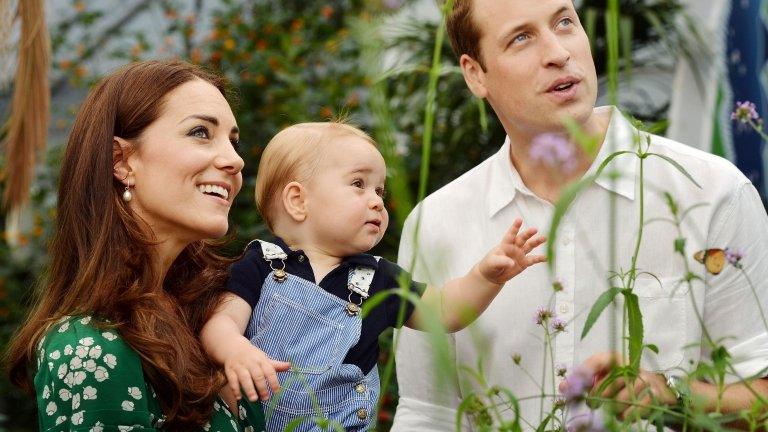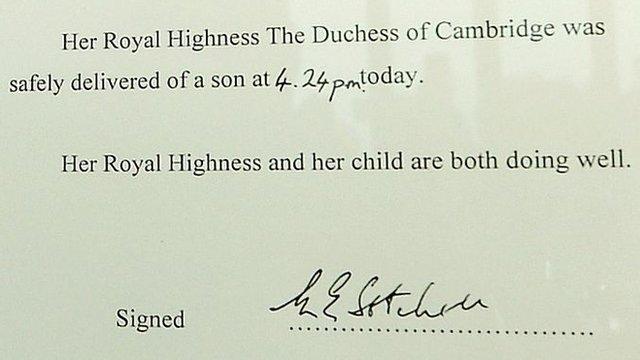Royal baby: Severe sickness 'traumatic'
- Published

The Duchess of Cambridge has announced she is expecting her second baby.
As with her first pregnancy, she is suffering from hyperemesis gravidarum - a severe form of sickness.
It affects about one in every 200 pregnancies and results in severe nausea and vomiting. One of the main dangers is dehydration.
Ebru Macavoy, 29, from London, had the same condition during her pregnancy in 2009.
"It was traumatic, debilitating, horrendous. I was constantly nauseous and vomiting 30 times a day."
She said: "I feel so sad for Kate that's she's going through this, I feel really sorry, it's so traumatic."

Ebru Macavoy had the same condition in 2009
At the time she was a trainee barrister, just a few months married and at the start of her first pregnancy.
Ebru would wake up exhausted.
"From the moment I opened my eyes I was nauseous. If I turned in bed I would vomit, every time I moved I felt sick.
"I couldn't drive or go for a walk - all the simple tasks were absolutely impossible."
She lost a lot of weight during this time going from a size 10 dress size to closer to a size six.
Ebru, who now volunteers to help other people with the condition, says she was at the "extreme end" of hyperemesis.
The vomiting never stopped during the pregnancy. However, drugs helped to control her symptoms until she was being sick only five or so times a day.

Symptoms
Persistent vomiting
Dehydration
Tiredness
Dizziness

When she gave birth to her son Ruben: "As soon as I'd given birth it was gone."
The severe nausea and vomiting continues throughout pregnancy.
Hyperemesis gravidarum needs specialist treatment and often requires a stay in hospital. Ebru said she was in hospital about 20 times during her pregnancy.
One of the main dangers is dehydration as it can be difficult to keep enough fluid in the body.
Twin link
The condition is unlikely to cause any harm to the baby. However, there is a risk of the baby being born with a low birth weight if there is significant weight loss during the pregnancy.
Dr Tim Draycott, a consultant obstetrician and spokesman for the Royal College of Obstetricians and Gynaecologists, said: "With treatment - intravenous fluids and medication to control the vomiting and nausea - it's quite a benign condition although horrible to have.
"The real risk is under-treatment."
Consultant obstetrician Daghni Rajasingam: ''Once treated, (acute morning sickness) is a relatively simple condition''
Dr Draycott said the condition was linked to hormones in pregnancy and usually improved as levels went down after around 13 weeks.
"We are not sure why some women get it when others do not, but it is slightly more common if the mother is expecting twins."
There are suggestions the condition is genetic, meaning multiple bouts of hyperemesis gravidarum is not uncommon.
Rosie Dodds, from the National Childbirth Trust, said avoiding trigger smells, such as smoke or fatty foods, could help alleviate milder symptoms associated with the more typical pregnancy sickness.
"There is limited evidence, the use of ginger, vitamin B6 and acupressure have also been found to be effective for some women, though it's always worth checking with your midwife or doctor first. The traditional remedy of eating dry foods such as toast is unlikely to do any harm.
"We wish William and Catherine the best of luck with the pregnancy and hope that the duchess is feeling better soon."
- Published8 September 2014

- Published8 September 2014

- Published22 July 2013
